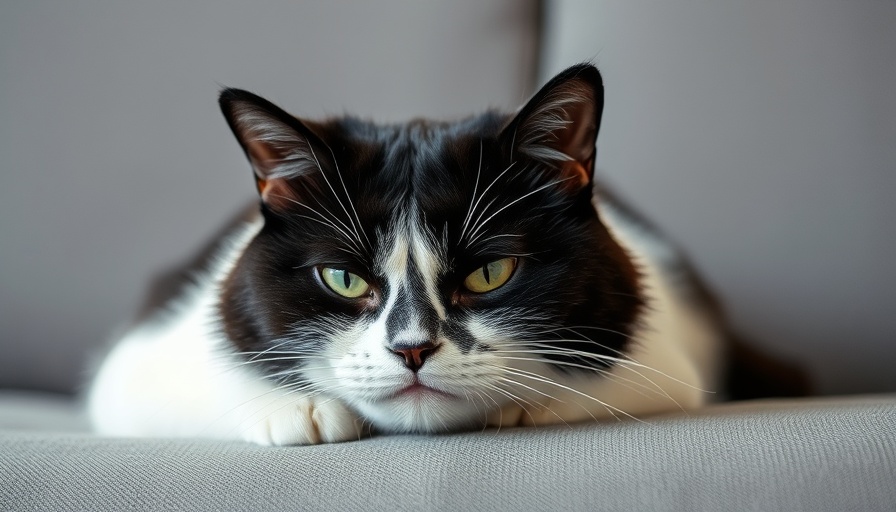
Understanding Feline Behavior: Do Our Cats Really Hold Grudges?
Cats, the mysterious yet beloved companions of millions, often leave their owners baffled with their quirks and sudden shifts in mood. One day they may cuddle up to you, while the next they give you the silent treatment—especially after a visit to the vet or when you return from a trip. So what gives? Do cats truly hold grudges?
According to experts in feline behavior, the answer is a resounding no. Cats do not experience emotions like humans do; instead, their responses are often misinterpreted as grudge-holding behavior. As Dr. Maggie Placer, a veterinary science program manager at EveryCat Health Foundation, states, “Cats go off fact, not interpretation.” Understanding this key difference is essential in caring for and nurturing our feline friends.
What is a Grudge, and What Does it Mean for Cats?
A grudge for humans is a deep-seated emotion tied to feelings of hurt, anger, and betrayal. It serves as a defense against future disappointments. However, Joey Lusvardi, a feline behavior consultant, explains that cats lack a sense of morality and therefore do not hold grudges as we do. “They process changes in their environment and routine, and this might explain the seemingly peevish behavior observed after stressors like vet visits,” Lusvardi emphasizes.
Why Does My Cat Seem Upset?
When your cat appears to sulk or gives you the cold shoulder, it's not because they are plotting revenge. Instead, they are likely overstimulated or disoriented by changes in their environment, which could include new scents or sounds that disrupt their routine. Dr. Placer highlights this natural reaction, stating, “They are processing a change in their territory—one that they definitely didn’t sign off on.” Recognizing this helps cat owners understand that their pet's behavior is not personal but a response to their instinctive survival mechanisms.
Memory and Recognizing Attachments
So if they don't hold grudges, how do cats handle memories? Dr. Placer assures us that while cats don’t harbor grudges, they do have impressive long-term memories. They can remember their littermates by scent for up to two years and can recall both positive and negative experiences. For adopted cats who may have come from abusive situations, those memories can affect their trust levels—not out of resentment, but as a survival instinct.
If Not Grudges, Then What?
Understanding that cats do not hold grudges provides deeper insight into how we can foster a better relationship with them. Instead of viewing your cat's behavior as a reflection of emotional pain or anger, consider it a communication technique. This will not only improve interactions but can lead to a happier household. Creating a stable environment will help your cat feel safe and adjust better when faced with changes.
Creating an Enriching Environment
To strengthen your bond with your feline companion, consider implementing strategies for an enriching environment. Simple steps like providing safe hiding spaces, interactive toys, and vertical climbing options can make a world of difference. Remember, regular playtime and interaction are vital in fostering a trusting relationship.
Addressing the Common Misconceptions
Many pet owners fall victim to the misconception that their pets have vindictive motives, which leads to frustration and even guilt. Educating yourself on feline behavior can clear the fog and prevent misunderstandings. The more you know, the better equipped you'll be to interpret your cat's needs.
Whether it's understanding that a cat's aloofness after a vet visit is not a sign of grudging love, or realizing that their antics are simply instinctive behavior, each insight brings you closer to your pet. With consideration and care, you can enhance your connection with your furry friend.
Conclusion: Building a Better Bond
In summary, while cats don’t hold grudges or harbor resentment, they do experience the world and their relationships incredibly differently compared to humans. Being in tune with your cat's needs and responses can help foster a close-knit bond and improve overall well-being. So next time your kitty seems a bit off, remember: they’re simply navigating their world, and it’s up to you to provide understanding and reassurance.
Engage with your feline friend today! Consider your cat's feelings, ensure their environment is enriching, and watch as your relationship flourishes.
 Add Row
Add Row  Add
Add 


Write A Comment